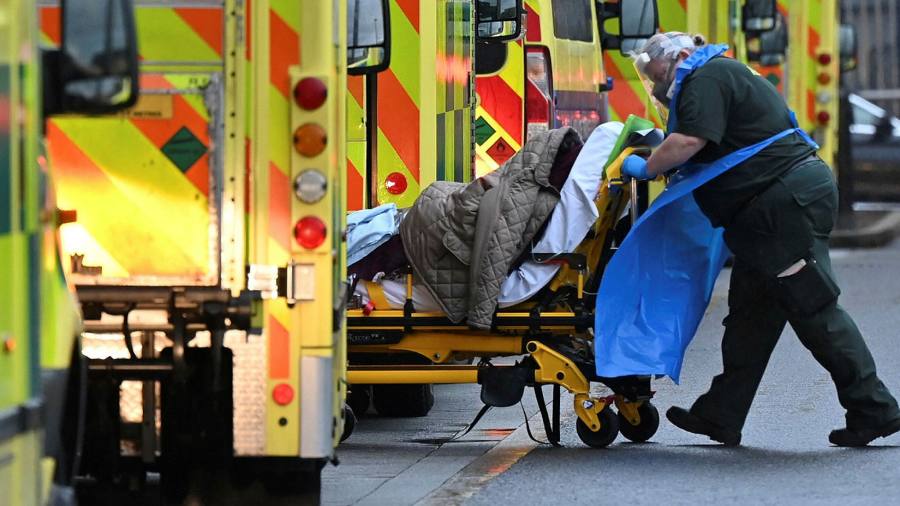[ad_1]
UK scientific advisers have questioned whether a “big wave of infection†should be allowed to flow through the country’s population once the most vulnerable groups in society have been vaccinated against coronavirus, in comments which may reopen the contentious debate around herd immunity.
With prime minister Boris Johnson preparing to set out the road map for lifting England’s Covid-19 lockdown on February 22, the scientists have warned a national discussion will soon be needed on the level of risk people are prepared to accept from the virus in the future.
“There will be a massive debate about whether we should allow a big wave of infection once we’ve vaccinated all the over 50s,†one influential member of the government’s Scientific Pandemic Influenza Group on Modelling (SPI-M) told the FT. “Are we going to aim for low prevalence or accept high prevalence for a period?â€
“It boils down to what we, as a society, are prepared to accept,†added Mike Tildesley, an academic at the University of Warwick and also a member of SPI-M. “We see waves of seasonal influenza and we don’t lockdown every winter, we accept a level of risk.
“It’s possible you could run hot in terms of cases, and low in terms of number of hospitalisations and deaths,†he added, noting that having a high R number — which indicates the rate of transmission of the virus — would not necessarily be a bad thing if hospitalisations are low.Â
The scientists’ comments come as the Covid Recovery Group of 50-plus Tory MPs who are sceptical of lockdowns urge Johnson to set out a road map for exiting the restrictions soon, with some forecasting a “battle royal†between Conservative MPs and the government.
Steve Baker, vice-chair of the CRG, accused some scientists of “failing to recognise their power to spread despair and despondencyâ€.
He added: “Some seem to be floating untested hypotheses in the media. Doing so is not science. It is the death of science. Perhaps worse, it brings scientists squarely into the political domain, something we would I am sure all like to avoid.â€Â
Mark Harper, chair of the group, urged the government to stick to its schedule to reopen the economy.
He said: “It’s crucial we don’t backslide on this, not least because the government has said it wants to give schools two weeks notice before they open, and — as the PM said — it is the ‘settled will’ of most MPs that pupils should be back in school on 8 March.â€
Prof Tildesley cautioned however that if only 10 per cent of the population are left unprotected by the vaccine — in an optimistic scenario — that still leaves millions of people exposed to severe outcomes, including a protracted form of the illness, known as Long-Covid.
The scientific advisers noted that another important factor in the debate is whether the UK should ship vaccine supplies to other countries struggling to inoculate their most vulnerable populations, once all over 50s have received a jab.
“If we start vaccinating the young, at that point we will be depriving other people,†said one member of SPI-M.
“Global equity is going to become a bigger issue,†added Graham Medley, professor of infectious disease modelling and a member of the Scientific Advisory Group for Emergencies (SAGE). “All public health experts would like vaccination to be used to improve global health rather than focus on individual countries.â€
[ad_2]
Source link





